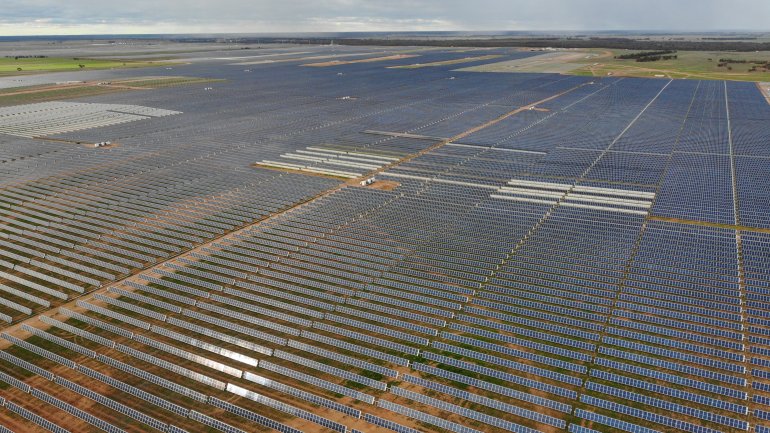One of Australia’s largest solar farms, with more than 750,000 solar modules generating 255 MWdc of electricity, has come to life. The project is majority owned by UK-based infrastructure investor John Laing with Australian-based Maoneng holding the rest.
The project’s registration approval is expected to help Maoneng progress with its plan to develop four large-scale 50 MW/100 MWh batteries for Australian power producer, AGL. One of the planned batteries to be located next to the Sunraysia solar farm, with AGL contracted to take half of the solar farm’s output.
The utility-scale batteries are expected to be operational from 2023, coinciding with closure of the Liddell coal-fired generator, and will store enough energy to power up to 30,000 thousand homes, providing 200 MW/400 MWh of dispatchable capacity to AGL between 2023 and 2038.
The Energy Storage Development Agreement builds on the 300 MW solar offtake which AGL signed with Maoneng in December 2017 to procure renewable energy from generators developed by Maoneng including 200MW from other solar plants yet to be built.
Cost of delays
The project has caused John Laing significant losses this year, and was one of a number of solar projects to be badly affected by connection and commissioning issues, located on a particularly troubled part of the grid.
With losses of over GBP43 million ($75 million) from its two Australian solar assets – the Finley and Sunraysia solar farms in the first half of this year, John Laing has decided against making any new investments in Australian renewables. The UK-based infrastructure investor is not alone in its decision to pull out of the Australia sector, with a number of large contractors quitting solar because of the impacts of commissioning delays.
The delays in production at Sunraysia have cost not only John Laing, but also EPC contractor, Decmil. In December 2019, Decmil announced it would suffer a $14 million hit to its cash flows because of a dispute with John Laing and Maoneng over delays. Inverter providers Schneider Electric also become embroiled in the legal claims relating to the projects.
This content is protected by copyright and may not be reused. If you want to cooperate with us and would like to reuse some of our content, please contact: editors@pv-magazine.com.









2 comments
By submitting this form you agree to pv magazine using your data for the purposes of publishing your comment.
Your personal data will only be disclosed or otherwise transmitted to third parties for the purposes of spam filtering or if this is necessary for technical maintenance of the website. Any other transfer to third parties will not take place unless this is justified on the basis of applicable data protection regulations or if pv magazine is legally obliged to do so.
You may revoke this consent at any time with effect for the future, in which case your personal data will be deleted immediately. Otherwise, your data will be deleted if pv magazine has processed your request or the purpose of data storage is fulfilled.
Further information on data privacy can be found in our Data Protection Policy.